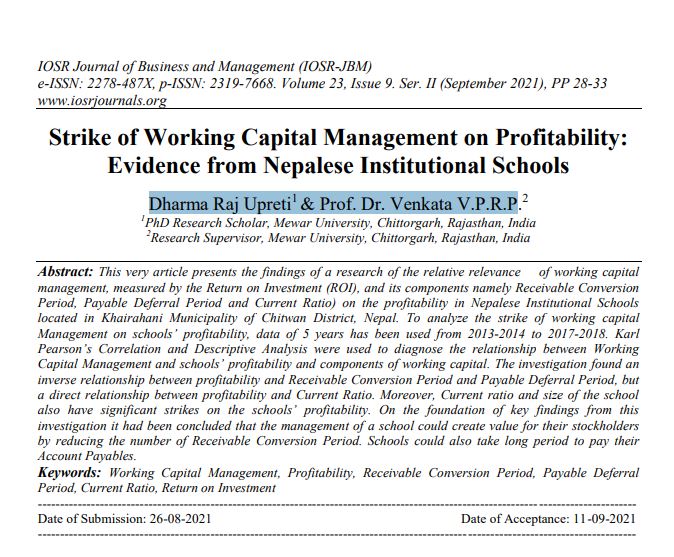Strike of Working Capital Management on Profitability: Evidence from Nepalese Institutional Schools
This very article presents the findings of research of the relative relevance of working capital management, measured by the Return on Investment (ROI), and its components namely Receivable Conversion Period, Payable Deferral Period and Current Ratio) on the profitability in Nepalese Institutional Schools located in Khairahani Municipality of Chitwan District, Nepal. To analyze the strike of working capital Management on schools’ profitability, data of 5 years has been used from 2013-2014 to 2017-2018. Karl Pearson’s Correlation and Descriptive Analysis were used to diagnose the relationship between Working Capital Management and schools’ profitability and components of working capital. The investigation found an inverse relationship between profitability and Receivable Conversion Period and Payable Deferral Period, but a direct relationship between profitability and Current Ratio. Moreover, the Current ratio and size of the school also have significant strikes on the schools’ profitability. On the foundation of key findings from this investigation, it had been concluded that the management of a school could create value for its stockholders by reducing the number of Receivable Conversion Periods. Schools could also take a long period to pay their Account Payables.
Keywords: Working Capital Management, Profitability, Receivable Conversion Period, Payable Deferral Period, Current Ratio, Return on Investment
Author(s): Dharma Raj Upreti , Prof. Dr. Venkata V.P.R.P
Read PDF
